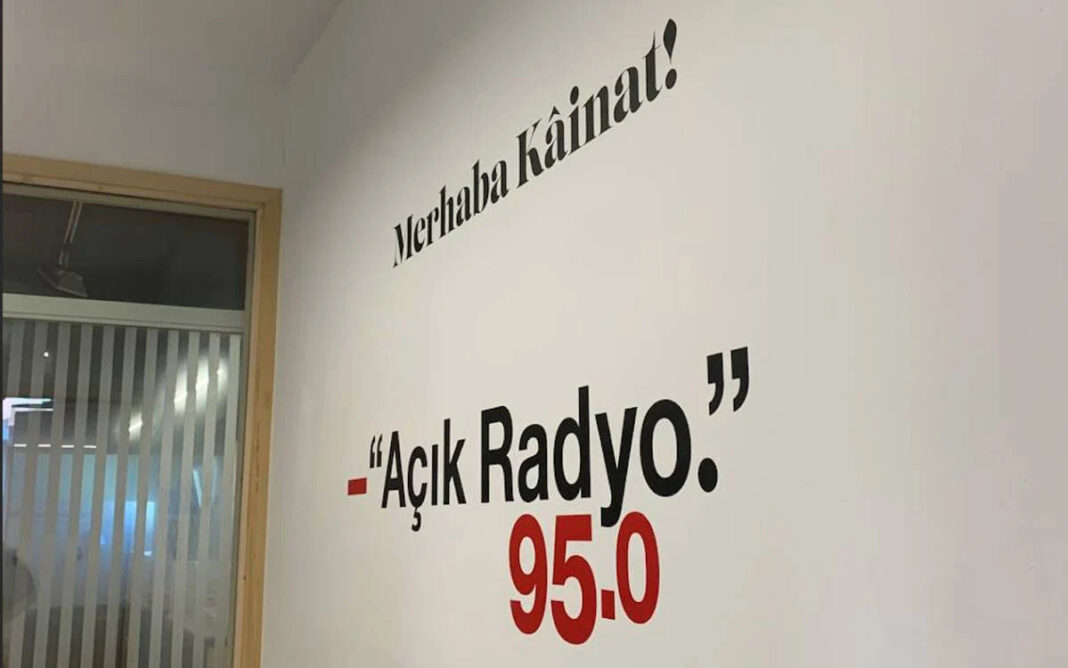The Radio and Television Supreme Council (RTÜK), Turkey’s broadcasting and streaming regulator, has cancelled the broadcasting license of independent radio station Açık Radyo (Open Radio) due to a reference to “genocide” in the mass killing of Armenians in the final days of the Ottoman Empire, a RTÜK member announced.
İlhan Taşçı announced on X on Wednesday that RTÜK cancelled Açık Radyo’s broadcasting license on the grounds that the station did not comply with a five-day broadcast ban it was given on accusations of “inciting hatred and enmity among the people.”
Taşçı said since the radio station paid the fine it was levied for the same reason and only failed to comply with the ban, RTÜK should have taken that into account and not cancelled its license.
RTÜK, Açık Radyo’nun lisansını iptal etti.
Gerekçe, kurulun daha önce verdiği “toplumu kin ve düşmanlığa tahrikten” 5 gün program durdurma cezasına uymayıp yayını sürdürmesi.
Oysa yayıncı para cezasını ödemiş, ancak yayın kesmemiş. Bu durum yayıncı lehine yorumlanmalıydı.— İlhan Taşcı (@ilhantasci) July 3, 2024
Açık Radyo, a regional radio station established in 1995 and broadcasting from İstanbul, was slapped with RTÜK sanctions on May 22 including the five-day broadcasting ban and a fine of TL 189,000 ($5,800) due to the remarks of a guest speaker, political scientist Cengiz Aktar, on the Açık Gazete (Open Newspaper) program on April 24, when the mass killings of Armenians are commemorated.
Armenians say — supported by historians and scholars — 1.5 million of their people died in a genocide committed under the Ottoman Empire during World War I.
Turkey accepts that both Armenians and Turks died in huge numbers as Ottoman forces fought czarist Russia but vehemently denies a deliberate policy of genocide and notes that the term had not been legally defined at the time.
Aktar’s remarks — “[Today] is the 109th anniversary of the mass deportation and massacre of [Armenians] on Ottoman soil described as genocide. As you know, Armenian genocide commemoration has again been banned this year” — drew RTÜK’s ire.
According to the watchdog, it is not possible to talk about freedom of expression when journalists make non-factual statements that will destroy the unity and solidarity of society, polarize it or ruin its prestige. RTÜK said when announcing the reasons for its sanctions on the radio station that the guest speaker openly used the term “genocide” during the conversation and the program’s host failed to correct him in line with the broadcaster’s public duty and responsible broadcasting principles. As a result RTÜK found the exchange as having the potential to “incite hatred and enmity among the people.”
Açık Radyo, however, denied RTÜK’s accusations in a statement last month, saying that as a radio station which has the motto of being open to the “all the world’s voices, colors and vibrations,” it is impossible for the radio station to incite enmity among the people.
The station said since its establishment in 1995, Açık Radyo has been defending freedom of the press and freedom of expression and that RTÜK’s accusations do not comply with these universal values.
The station said it has taken legal action to challenge RTÜK’s sanctions.
However, anonymous sources from Açık Radyo told the Bianet news website that the station paid the fine but was unable to halt its broadcast due to a technical problem and informed RTÜK accordingly.
They said RTÜK did not respond to their notification and cancelled the station’s license without waiting for the judicial process to play out since Açık Radyo had challenged RTÜK’s sanctions in court.
Although Açık Radyo was founded as a private company as required by Turkish law, it functions similarly to a nonprofit organization. The station’s format includes news, music and talk radio. All of Açık Radyo’s presenters and producers are volunteers except for those involved with the morning show.
It is common for pro-opposition or independent news channels in Turkey to face restrictions on their broadcasting through sanctions imposed by RTÜK, whose board members are appointed in proportion to the number of seats held by political parties in parliament, meaning that the ruling Justice and Development Party (AKP) currently dominates the agency.
After a failed coup in July 2016, the Turkish government summarily shut down nearly 200 media outlets due to their alleged links to terrorism or their alleged involvement in terrorist propaganda. The post-coup crackdown also included the detention of dozens of journalists, which briefly made Turkey the second worst jailer of journalists in the world after China.
Turkey, which has been suffering from a poor record of freedom of the press for years, ranks 158th among 180 countries in RSF’s World Press Freedom Index published on May 3 on the occasion of the World Press Freedom Day.
